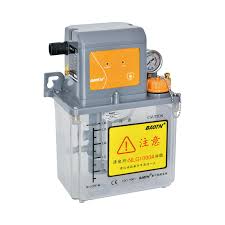Machinery is the backbone of any manufacturing or industrial plant. It is essential to keep your equipment running smoothly and efficiently to ensure maximum productivity and profitability. One of the most critical aspects of maintenance is lubrication, which can significantly extend the lifespan of machinery components.
Traditional lubrication methods such as manual application can be time-consuming, messy, and often ineffective in reaching all the necessary components. Hence, introducing grease lubrication pumps for a faster, cleaner, and more efficient way to maintain your machines is crucial. In this article, we will delve into what grease lubrication pumps are and how they can benefit your business operations by keeping your machinery running smoothly.
The Importance of Lubrication
Lubrication is a crucial aspect of machinery maintenance. It helps to reduce friction and wear between moving parts, which can lead to costly repairs or replacements if not properly addressed. Without proper lubrication, machines are more likely to overheat, break down, or fail altogether.
One way to ensure proper lubrication is through the use of a grease lubrication pump. This type of pump delivers precise amounts of grease to designated areas of the machine, ensuring that all moving parts are adequately lubricated. It also helps to extend the life of the machine by reducing wear and tear caused by friction.
Regular maintenance and inspection are necessary for any piece of machinery, but incorporating proper lubrication techniques like using a grease lubrication pump will help keep your equipment running smoothly for longer periods without incurring unnecessary repair expenses.
Common Lubrication Methods: Pros and Cons
Lubrication is an essential aspect of machinery maintenance, and there are several methods available for lubricating different types of equipment. Some common methods include manual lubrication, automatic lubrication systems, and centralized lubrication systems.
Manual lubrication involves applying the lubricant directly to the components using a grease gun or other similar tools. While this method can be cost-effective, it is time-consuming and requires frequent monitoring to ensure consistent application.
Automatic lubrication systems use a pump to distribute the lubricant automatically at predetermined intervals. This system ensures consistent application and reduces downtime due to maintenance. However, it can be costly upfront and requires regular maintenance.
Centralized lubrication systems involve a single pump that distributes the oil or grease to multiple points in the equipment simultaneously. This system provides optimal coverage for all components, reduces maintenance costs by minimizing downtime, but also has higher installation costs compared to other methods.
Ultimately, choosing the appropriate method depends on factors such as equipment type, usage frequency, budget constraints, and more. By understanding the pros and cons of each method thoroughly before selecting one suitable for your machinery needs will help keep them running smoothly for years ahead!
How the Pump Works: Benefits and Efficiency
The grease lubrication pump is a vital component in keeping machinery running smoothly. It works by forcing grease into the bearings of moving parts, reducing friction and wear. This results in improved efficiency, reduced maintenance costs, and longer machine lifespan.
One of the main benefits of using a grease lubrication pump is its efficiency. By delivering precise amounts of grease to specific areas, it ensures that all components are adequately lubricated without waste or excess. This targeted approach also reduces the risk of contamination and improves overall cleanliness.
Overall, the use of a grease lubrication pump can significantly improve machinery performance while reducing maintenance costs and downtime. Its efficiency and precision make it an essential tool for any industrial operation looking to optimize its equipment’s lifespan and productivity.
Applications and Industries that Benefit from the Pump
The grease lubrication pump is a vital component in industries that require regular and consistent lubrication of machinery. Industries such as manufacturing, construction, and transportation all benefit from the use of these pumps. In the manufacturing sector, the grease pump is used to ensure that production lines run smoothly and without interruption. This type of pump helps to prevent costly downtime due to equipment failure.
Construction companies also rely heavily on grease lubrication pumps for their heavy-duty machinery. These machines are subject to harsh conditions and need constant maintenance to ensure they operate correctly. Grease lubrication pumps help reduce wear and extend the life of equipment components.
Finally, transportation companies use grease pumps extensively in their fleets to keep vehicles running safely and reliably. Whether it’s trucks or buses, regular maintenance with a grease pump helps prevent breakdowns on long journeys, reducing costs associated with repairs and replacements. All in all, a reliable grease lubrication pump can make a significant difference in keeping machinery operating efficiently across various industries!
Maintenance Tips for Longevity and Optimal Performance
Proper maintenance is key to ensuring that machinery functions optimally and lasts for a longer period. The first step in maintaining machinery is to follow the manufacturer’s guidelines for lubrication, cleaning and inspections. Regularly inspecting equipment components such as belts, hoses, filters and fluids can help prevent unexpected breakdowns or costly repairs. Additionally, it is important to document all maintenance activities to keep track of necessary repairs and replacements.
A grease lubrication pump is an essential tool in maintaining machinery for optimal performance. This type of pump works by pumping oil or grease into moving parts of the machine to reduce friction and wear. Lubricating machines with a grease pump helps extend the life span of mechanical components while reducing heat buildup caused by friction. Furthermore, using a high-quality lubricant will maximize the efficiency of the machine while reducing energy consumption.
In conclusion, regular maintenance practices are crucial to ensure longevity and top-notch performance from your machinery. Proper documentation should be kept while adhering strictly to manufacturers’ instructions on cleaning, inspection and scheduled maintenance intervals. Grease lubrication pumps are ideal tools for keeping your machinery running smoothly; they help maintain optimal functionality while extending component life cycles thereby minimizing downtime costs in case of any malfunction or unexpected breakdowns.
